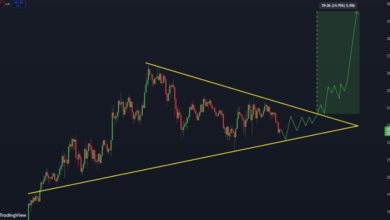Revolutionizing Recruitment with AI-Powered Resume Screeners

In today’s fast-paced hiring landscape, the demand for efficient and accurate candidate assessment tools is higher than ever. Recruiters and hiring managers are increasingly turning to resume screeners powered by artificial intelligence (AI) to help manage the daunting task of reviewing countless resumes and quickly identifying top talent. But what exactly is a resume screener, and how does it transform the hiring process? This guide explores the importance of AI resume screeners and provides insights into how they can make the hiring journey more streamlined, objective, and effective.
The Need for Modern Resume Screening Tools
The traditional process of manually reviewing resumes is time-consuming, often inconsistent, and prone to bias. As the volume of applications continues to grow, these issues only become more challenging. A resume screener automates this critical step, evaluating resumes based on skills, qualifications, experience, and fit for a specific role, drastically reducing the time needed to shortlist candidates.
With advancements in AI and natural language processing (NLP), today’s resume screeners can do more than just filter by keywords—they’re equipped to understand the context and relevance of each candidate’s background, resulting in smarter and more inclusive hiring.
What is a Resume Screener?
A resume screener is a tool, often powered by AI, that automatically reviews resumes and extracts important details about each candidate. These screeners analyze resumes to identify relevant skills, education, experience, and achievements, then structure this data in a way that makes it easy for recruiters to make comparisons. Advanced screeners, like Weekday’s AI Resume Screener, go beyond simple keyword searches to truly understand the depth of each applicant’s qualifications.
Using AI, resume screeners can:
- Recognize relevant skills and experiences, even if worded differently from the job description.
- Extract nuanced details from resumes formatted in unconventional ways.
- Evaluate each candidate’s fit for the role based on customizable criteria, such as “must-have” and “good-to-have” qualifications.
How AI Resume Screeners Differ from Traditional ATS Systems
Most hiring professionals are familiar with traditional Applicant Tracking Systems (ATS) that help manage large volumes of applications by filtering resumes based on keyword matches. However, these systems have their limitations. Many candidates with valuable experience are often overlooked because their resumes don’t include the exact keywords or standard formatting required to pass through an ATS.
Unlike traditional ATS, an AI-powered resume screener uses advanced machine learning models to comprehend the context of each candidate’s experiences. This means that even if an applicant doesn’t use the exact terms in a job description, the AI can interpret and recognize relevant skills, ensuring that qualified candidates aren’t missed due to technicalities.
Key Features of an Effective Resume Screener
A modern resume screener, such as the one developed by Weekday, leverages cutting-edge technology to offer several key benefits:
- Contextual Understanding: AI models go beyond keywords, analyzing phrases and descriptions to understand a candidate’s qualifications. This helps ensure that all relevant experience is recognized, regardless of how it’s described in the resume.
- Bulk Resume Parsing: For high-volume hiring, AI screeners can process thousands of resumes in minutes. Weekday’s resume screener, for example, allows recruiters to screen up to 1000 resumes at once, providing a ranked list of candidates based on pre-defined requirements.
- Customizable Criteria: Advanced screeners allow recruiters to specify “must-have” and “good-to-have” qualifications, enabling a tailored approach to each role. This customization ensures that only the most suitable candidates are prioritized.
- Reduction of Hiring Bias: By focusing on qualifications and experience, AI-powered screeners help minimize bias in the hiring process. Candidates are ranked based on relevant factors, rather than relying on potentially biased human judgment.
- Detailed Candidate Insights: With a resume screener, recruiters receive structured summaries for each applicant, making it easier to assess skills, job history, and other qualifications at a glance.
How a Resume Screener Enhances the Candidate Experience
A resume screener doesn’t just benefit hiring teams; it also provides advantages for candidates. By ensuring that each resume is reviewed objectively and fairly, resume screeners increase the likelihood of qualified candidates being recognized, regardless of their resume formatting or choice of words. Candidates who might otherwise be overlooked by traditional ATS systems now have a better chance of standing out if they meet the role’s criteria.
Additionally, because AI resume screeners expedite the initial stages of recruitment, the hiring process becomes faster, leading to quicker responses for candidates. This streamlined experience is especially appealing in today’s competitive job market, where applicants value timely feedback and updates.
How to Use a Resume Screener Effectively
To get the most out of a resume screener, recruiters should follow best practices to ensure they’re screening for the most relevant qualities:
- Define Clear Criteria: Before screening resumes, establish the “must-have” and “good-to-have” qualifications. This clarity enables the AI to rank candidates accurately and ensures the best fit for the role is at the top of the list.
- Provide Context with a Job Description: Supplying a detailed job description gives the AI more information to work with. This context allows it to understand which skills and experiences are most relevant to the position.
- Ensure Consistent Formatting: For optimal results, encourage candidates to submit their resumes in formats that are easily readable by the AI, such as PDF or DOCX. Clear headings, consistent formatting, and simple layouts enhance the accuracy of resume parsing.
- Review Ranked Results Strategically: The resume screener provides a ranked list, but it’s essential to review top candidates carefully, ensuring they meet both technical requirements and any cultural or interpersonal qualities valued by the team.
- Leverage Insights for Decision-Making: A resume screener’s insights can provide recruiters with a comprehensive understanding of each candidate’s background, helping them make well-informed decisions that go beyond what’s written on paper.
FOR MORE INFORMATION CLICK HERE : dubai marina dining
Overcoming Limitations: Common Challenges with Resume Screeners
While resume screeners have numerous benefits, they’re not without challenges. Some common issues and solutions include:
- Non-Standard Resume Formats: Creative resumes with unique layouts can sometimes challenge ATS and AI screeners. However, advanced AI models, like those used in Weekday’s resume screener, are designed to interpret various formats, ensuring important information isn’t missed.
- Language Nuances: Different industries and regions use varying terminology for similar skills. AI resume screeners are continually evolving to recognize these nuances, though recruiters can also optimize results by providing specific keywords in the job description.
- Bias in Historical Data: While AI helps reduce bias by focusing on skills, it’s essential that the AI models are trained on diverse data sets. This ensures that candidates from all backgrounds have equal opportunities.
The Future of Resume Screening
As AI and machine learning continue to evolve, resume screeners will only become more sophisticated. Future developments may include more refined parsing capabilities, real-time skill assessments, and enhanced insights into candidate compatibility for remote and hybrid work environments. Additionally, resume screeners are likely to integrate with other HR tools, creating a seamless and fully digital hiring process that reduces friction for both recruiters and candidates.
AI-powered resume screeners like Weekday’s have demonstrated the potential to transform the recruitment landscape. By reducing time-to-hire, improving the accuracy of candidate assessments, and increasing diversity in hiring, these tools represent the future of recruitment technology.
Conclusion: The Power of AI in Recruitment
In the digital age, where hiring efficiency and candidate quality are paramount, AI-driven tools like resume screeners have become indispensable. They allow companies to quickly identify top talent, reduce human bias, and offer a fairer, more consistent evaluation process for all applicants. From startups to large enterprises, a resume screener is a vital tool for any hiring team looking to stay competitive.
By embracing this technology, hiring teams can streamline their workflows, improve candidate experiences, and ultimately build stronger, more diverse teams. Whether you’re a recruiter managing high-volume hiring or a job seeker looking to optimize your application, understanding and leveraging the benefits of a resume screener can make all the difference.





